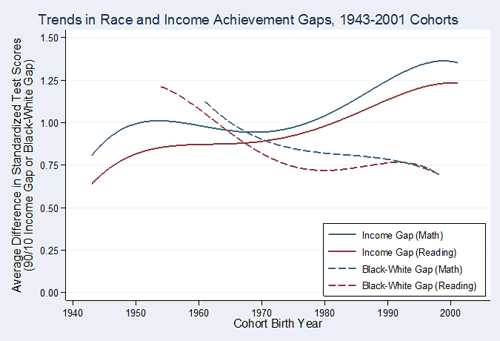The endless EU vs US debate rolls on, but now with an odd twist. Although the objective facts about economic inequality, immobility and so on are far worse in the US than the EU, the political situation seems more promising. (I’m not talking primarily about electoral politics but about the nature of public debate.)
In the EU, the right has succeeded in taking a crisis caused primarily by banks (including the central bank, and bank regulators) and blaming it on government profligacy, which is then being used to push through yet more of the neoliberal policies that caused the crisis. And, as we’ve just seen, formerly social democratic parties like New Labour in the UK, are pushing the same line.
By contrast the success of Occupy Wall Street have changed the US debate, in ways that I think will be hard to reverse. Once the Overton window shifted enough to allow inequality and social immobility to be mentioned, the weight of evidence has been overwhelming.
This post by Tyler Cowen is an indication of how far things have moved. Cowen feels the need, not merely to dispute some aspects of the data on inequality and social mobility in the US, but to make the case that a unequal society with a static social structure isn’t so bad after all.
Update Cowen offers a non-response response here. Apparently, disliking arguments for inherited inequality, such as his point 3 (because of habit formation, social mobility reduces welfare) is a “Turing test” for reflexive leftism.
[click to continue…]
